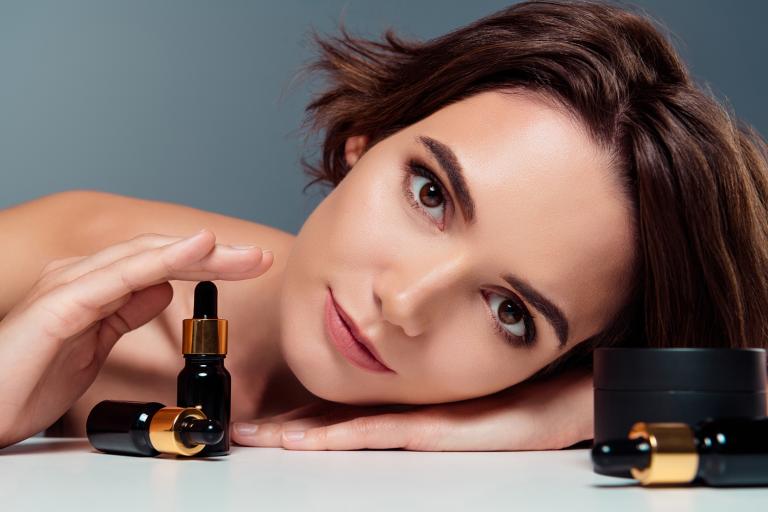Many people believe facial serums are good for their skin. They may even have a variety of little tubes and glass bottles tucked away in their bathroom drawers and cabinets.
But it’s important to know exactly when and how to use these products to make the most of their skin nourishing ingredients.
Types of Skincare Serums
Not all serums are made alike.
Some are lightweight, water-based, and absorb quickly into your skin. Others are essentially oils.
What both types have in common is that they contain active ingredients that benefit skin in different ways.
Aesthetic Skin Treatments
-
For Lines and Wrinkles
Some work to minimize fine lines and wrinkles. For example, a hydrating serum may contain hyaluronic acid, which plumps skin with moisture.
Skin-firming peptides also help to smooth out wrinkles.
-
For Acne
Acne-fighting serums may contain salicylic acid and retinol.
-
For Discoloration
Serums with ferulic acid and vitamins C and E help fade hyperpigmentation, also known as brown spots or age spots.
“Vitamin C in particular can prevent brown spots, reverse damage from ultraviolet rays, and stimulate the growth of new collagen,” Abigail Waldman, MD, told Harvard Women’s Health Watch.
Protective Skin Treatments
-
For Inflammation
Anti-inflammatories such as arnica are popular ingredients.
-
For Dry Skin
Hydrators such as ceramides (moisturizing lipids that keep in moisture), amino acids, and essential fatty acids all benefit dry skin, strengthening the skin barrier and protecting it from the environment.
Using Serums on Your Skin
-
Layer Products Properly
Serums should go on before you apply a daytime moisturizer or night cream.
If you put moisturizer on before a serum, it may block the serum’s beneficial ingredients from penetrating the skin.
Broad-spectrum sunscreen, which sits on the skin and acts as a barrier, should be applied last.
-
Just a Drop Will Do
Serums tend to cost more than daily moisturizers due to their concentrated active ingredients. The good news is that a little serum goes a long way. Drop a few pea-sized amounts into your palm and gently pat on your face and neck. Wait a few minutes before applying moisturizer.
-
Use Gentle Serums for Irritation
If you have eczema or rosacea, look for gentle serums designed for those skin conditions. They may contain antioxidants to help reduce redness or soothing herbs like calendula to reduce blotchiness and flare-ups.
-
Use Serums at The Right Time
Serums can be used in the morning and at night. If your night cream contains vitamin A or retinols, consider skipping nightly serum applications to avoid potential irritation.
Serums do not need to be used daily. Even once or twice a week is beneficial.
-
Check for Allergies
Always test a small area of skin before using any new product. If you develop a rash, itching, burning, or blistering, stop use.
Products with fragrances can irritate skin. If possible, choose an unscented serum.

